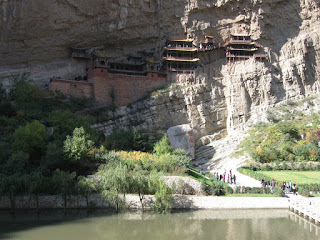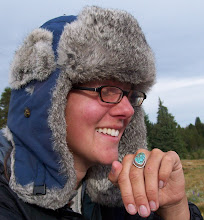

It so happens that every once and a while one comes across a really great human being. Well, to be truthful, I am partial to most human beings and so this great event happens nearly daily. But even so, I can still recognize an exceptional teacher when I cross paths with one. Dr. Ngoc, a 96 year old Vietnamese historian, is one such person. After two impressive lectures on early Vietnamese history and anti-colonial sentiment in Vietnam, I was rightfully in awe. After his 10k walks in the morning, Dr. Ngoc jumps from lecture to event with the youthfulness of a twenty year old. He never once used notes in his two hour lectures and, though his right eye would leak occasionally, a result of a stroke a few years back, he was the most stoic and articulate speaker we had during our stay in Hanoi. His lecture on the nationalism inspired by Uncle Ho, the man with one hundred names, and his use of the banyan tree as an analogy for the "hearty stock of the Vietnamese people" wove like poetic threads throughout his eloquent talks.
Beyond the walls of our stifling classrooms and during the time after long lectures, we spent our afternoons and evenings wandering about the northern city. Sometimes recovering from eating too many pineapple drumsticks or a long night at Beer Corner with a walk around one of Hanoi's lakes or squeezing through the narrow passages of the old, colonial quarter. Vietnam left a lasting impression. Despite its long, bloody military history, the Vietnamese people I spent time with were some of the kindest and least nationalistic of all of the places we've been. Even more surprisingly, almost no sign of anti-American sentiment remains anywhere. After spending Christmas and New Year's with my parents in Sa Pa and Halong Bay, I got a pretty good glance at Northern Vietnam. What a place it is.
To view my father's photos from Vietnam and Siem Reap, Cambodia:
http://web.me.com/jsan06/Home_Pages/Vietnam_%26_Cambodia.html#grid
photos: Nat smiling in front of a pile of scrap metal and pieces of old US bomber planes at Hanoi's Revolutionary Museum, Dr. Ngoc working at his desk.




























